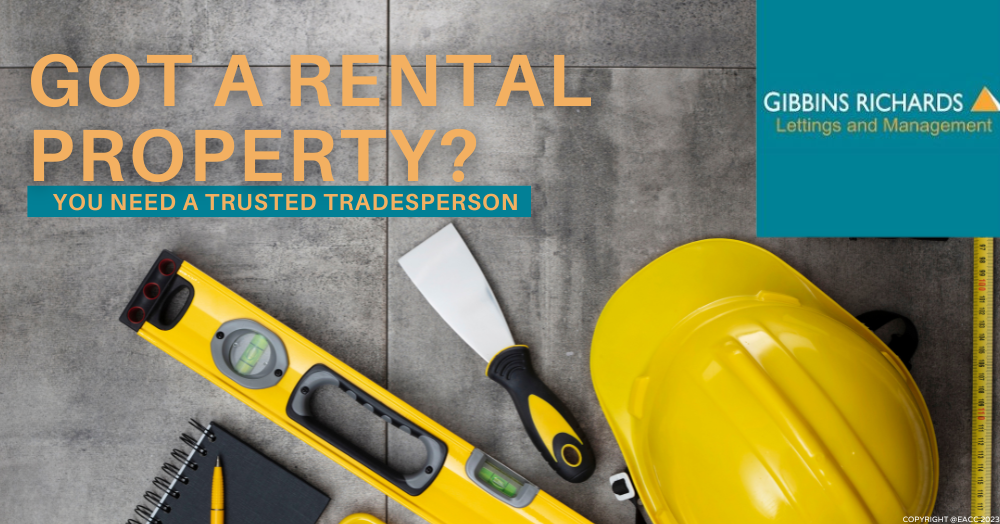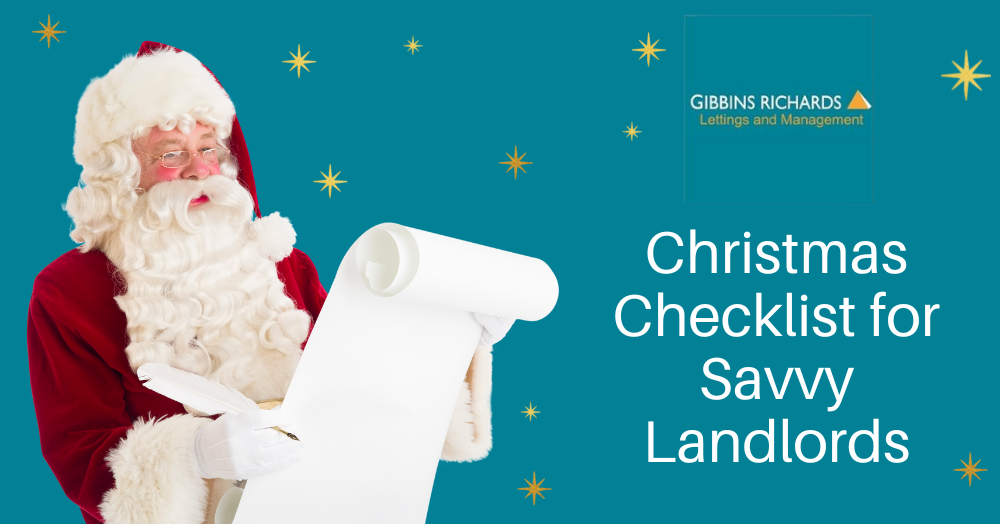Blog
- Details
- Hits: 488
How to Find a Good Contractor for Your Rental
If you’re a seasoned landlord, chances are you’ve experienced at least one out-of-hours call from a panicked tenant about a leaky toilet or boiler breakdown. Why is it these things never seem to happen at a reasonable hour?
Repairs and maintenance of your rental portfolio can be costly and stressful, so having trustworthy contractors is invaluable. You need someone who you know will get the job done and (hopefully) won’t charge you exorbitant fees to do so.
In this quick read, we look at some questions to ask yourself (and your contractor) to ensure they’re right for the job.
Are they local?
You may or may not live near your rental property, but it’s important that your contractor does (or can get there quickly), especially in the event of an emergency. Whether it’s a one-person business or multiple workers, you need to know how far they are from the property to make sure they get there in good time (hopefully preventing you from receiving multiple irate calls from your tenants).
Are they accredited?
What does the contractor do? Is it a bit of everything? Or is it a specialist trade such as a plumber or electrician? Either way, if they’re doing works on your rental property, you’ll need to check their accreditations. For example, are they on the Gas Safe Register, Electrical Safety Register, Considerate Constructors and so on. It’s easy to check online to find out if someone is accredited and able to do the work you need them to.
Do they come recommended?
Word-of-mouth recommendations are really helpful, and you can also find out how good their work is from websites such as Which? Trusted Traders or Checkatrade (these are also a good way to find contractors). Look to see if they’ve got a website or social media page, too. Past customers (especially unhappy ones) will be likely to leave reviews.
Do they have an on-call service?
Once you’ve established a relationship with a tradesperson, find out if they’d be happy to work outside of normal office hours. And if they do, what’s the charge? Make sure you know what to expect, as in urgent situations you could be paying a far higher rate than normal.
What did your tenants think of them?
If you’re using someone for the first time, ask your tenants what they thought. After all, they’re the ones who are getting a first-hand experience of the service. If they had a negative encounter, is it worth using them again?
At Gibbins Richards Lettings and Management Ltd, we offer a full property management service and have a team of reliable contractors. Contact us to find out more.
- Details
- Hits: 517
What Your Tenants Need to Know on Moving-In Day
Want to get your new tenancy off to a good start and safeguard against future disputes? Then here are some important things you should tell your tenants on moving-in day.
Let’s face it, finding good tenants and getting all the relevant paperwork ready for a new tenancy is hard work. As well as arranging viewings and reference checks, landlords have to finalise the contract, compile an inventory and take meter readings.
By the time all this is done, most landlords are itching to get the moving-in formalities over with quickly and leave their tenants to unpack.
We suggest you take the opportunity to talk through a few practical issues with your new tenants. This informal, in-person chat will build trust and reduce the chances of conflict later on. It will also mean that tenants don’t have to chase you up with niggling, minor queries.
Here are five things you should discuss with your tenants on the day they move in.
Rules on rubbish
Avoid the ugly sight and smell of overflowing bins outside your rental property by explaining the rules on rubbish disposal. Outline when the bins are collected and what items should be recycled or put into food waste.
Light bulb reminder
If the lighting in your property relies on dimmer switches, remind your tenant that only dimmable light bulbs should be used (this should be specified on the packaging). Using standard bulbs with dimmer lights is a potential fire hazard.
Fuse box explainer
It’s useful for tenants to know where the fuse box is so that if a fuse trips, they can reset it (if it’s safe to do so).
Show tenants where the stopcock is
If a pipe bursts or a tap breaks, you’ll want your tenants to act quickly. Show them where the stopcock is located so that if there is an emergency, they can turn off the internal water supply to prevent flooding.
Appliance information
Run through how to operate the boiler and any other appliances where it might not be straightforward. Leave copies of appliance manuals with tenants so they can refer to them if needed.
For more information about our property management services, contact us here at Gibbins Richards Lettings and Management Ltd.
- Details
- Hits: 687
Is It Worth Being a Landlord in 2023?
It’s safe to say, 2022 has been a year full of change for landlords. The last 12 months have seen more buy-to-let landlords selling up than ever before despite the demand for rental properties surging.
With new laws in force impacting landlords across the UK, the media has described such changes as a ‘war on landlords’, whilst tenants’ rights groups have applauded reforms around health and safety and eviction rules.
So, what next? What can landlords look forward to (or not) in 2023?
In this quick read, we look at some areas that could influence landlords’ profits and portfolios.
Rent increases
Starting with the good news, it looks like monthly rents and demand for rentals is set to grow in the new year. Instability in the housing market and increases in interest rates may mean that people looking for new homes put off buying for the time being and could rent instead.
Landlords can look forward to a surge in interested tenants and rising rents. In many areas, letting agents are seeing potential renters making over-offer bids to bag themselves a property.
Rising interest rates
Unfortunately, with the good comes the bad, and as interest rates rise, so too will the monthly cost of both residential and buy-to-let mortgages. Higher mortgage rates will be off-putting for many residential buyers and may force them into the rental market. However, landlords looking to renew mortgages or invest in new property will be facing similar hikes in the cost of borrowing.
Landlords may want to consider cheaper properties if planning to increase or start a portfolio to save paying out large chunks of their monthly rental income. On a more positive note, tenants may want to stay in their rentals for longer creating a stable income stream.
Availability of buy-to-let mortgages
In the last quarter of 2022, many lenders pulled their fixed buy-to-let deals from the market as a reaction to interest rate increases. Whilst it’s expected that these products will return to the mortgage market eventually, it may make borrowing for investment properties more difficult in the short term.
Expect tighter lending criteria and higher monthly outgoings.
Energy efficiency standards
The drive to make rental properties more energy efficient will impact landlords across the UK and whilst the rules won’t come into force until 2025, landlords need to start preparing.
Making changes to improve a rental’s EPC rating in 2023 will minimise the mad rush to do it when the law takes effect. Small steps such as getting a boiler serviced, improving insulation and draught-proofing and installing LEDs and smart appliances can make a huge difference to a rental’s energy efficiency.
In conclusion, the buy-to-let market still has much to offer those who are looking for a solid long-term return on their investment.
If you’re a landlord looking for new tenants, get in touch with our lettings team at Gibbins Richards Lettings and Management Ltd.
- Details
- Hits: 512
How to Make Being a Landlord Less Stressful
As a landlord, you might have invested in property for additional income; maybe it’s a way to save for your future, or perhaps you’re an accidental landlord and had to rent your property out due to a change in circumstances.
Whatever the reason, it’s a safe bet that you want to make a good return on your investment.
But while you’re happy to use a letting agent to find tenants, when it comes down to it, you just can’t bring yourself to pay them to manage the property for you.
This might just be one of your biggest mistakes.
How much does it cost for an agent to manage a property?
Let’s tackle the hard bit first. Agents can charge anywhere between 10% and 15% for full management. So, if your monthly rent is £1,500, you could be shelling out up to £225 a month. It’s definitely not cheap, but it does offer peace of mind in the event of problems occurring.
What does property management include?
Once an agent is managing your property, they can take care of aspects such as finding tenants, communicating with tenants (and you), rent collection, deposit protection, repairs and maintenance, inspections and deposit disputes. It’s best to speak to your chosen agent to find out exactly what their fee includes.
They have a black book full of contacts to get all your repairs done, including gas safety checks and boiler repairs.
When should you consider property management?
If you’re a full-time landlord managing several rentals, it may not be the right choice for you. However, rent collection services could save you time.
If you own a single rental and have a demanding job or other commitments, paying a monthly fee for management services may be the best thing you do.
Think of it as an extended insurance policy. Not only will they do all the admin required when finding tenants, but they’ll also manage the day-to-day elements of your property, saving you time and hassle. They’ll also carry out regular inspections, which many landlords fail to do. Speak to your agent to clarify what’s included in their service.
What else does property management offer?
Rules and regulations around rentals are always changing, and it’s an agent’s job to know what the government is implementing and when. They can keep you up to date with your legal obligations and ensure the property is fully compliant with health and safety laws.
Letting agents are also regulated, so must adhere to codes of professionalism, and have a duty of care towards you as their client.
If you’re looking for a property management service or help to find new tenants, get in touch with Gibbins Richards Lettings and Management Ltd today.
- Details
- Hits: 559
Christmas Checklist for Landlords
For most people, Christmas is a blissful time, a chance to unwind with family and friends and recharge the batteries.
But if you’re a landlord, you can’t ever completely relax, can you?
There’s always a possibility that something could go awry at your rental property. A pipe could burst, the boiler might pack up, or an uninvited guest (we’re talking about a burglar, not Santa) could pay a visit.
Whatever the scenario, landlords have a duty of care to act promptly in an emergency.
The good news is that you can reduce the risk of having to curtail your festivities by taking a few proactive steps now in the run-up to Christmas.
Here’s a checklist to help you prepare.
Talk to your tenants
Contact your tenants and wish them a happy holiday (it’s a nice thing to do, and a good way to build rapport). If your tenants are going away, remind them to lock up carefully as burglars often strike at this time of year. Also, ask if there are any niggling issues at the property that need addressing. It’s better to find out now than when you’re snoozing on the sofa on Christmas Day or raising a toast on New Year’s Eve.
Maintenance check
No doubt you already have a regular maintenance routine, but it’s worth checking that:
1. The boiler is in good working order and has recently been serviced.
2. Pipes are well insulated (this will reduce the risk of a pipe freezing and ultimately bursting and causing a major leak).
3. There are no cracks in the pipework or brickwork. Water can seep into these cracks and freeze, causing severe damage.
4. Carbon monoxide and smoke alarms are working.
5. Gutters are clear of leaves, so rainwater drains away rather than seeping into the brickwork.
Prepare an emergency contact list
It’s useful to have the contact details of an emergency plumber, electrician and locksmith in the event something goes wrong. Having to ring around on a public holiday to find someone who can help will only add to the stress and waste time.
But wait, there’s one other option!
Savvy landlords enjoy a trouble-free Christmas every year by having a letting agent manage their investment property. A good letting agent will step in if there’s an emergency. That means you can switch off your alerts and let your hair down, safe in the knowledge that an expert is in charge.
To learn more about our property management services, contact us here at Gibbins Richards Lettings and Management Ltd.














